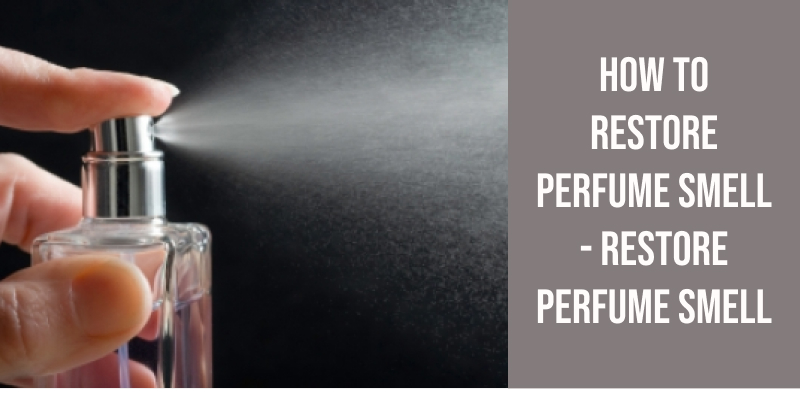Squalane, a popular ingredient in skincare products, does not necessarily have an expiration date. However, it may start to degrade or lose its effectiveness over time, typically in about two years after the bottle has been opened. This applies if it’s stored correctly, meaning in a cool, dark place away from direct sunlight and extreme temperatures. Keep in mind that fresher squalane will provide the best results, so it’s always a good idea to use your products within this time frame for the most effective skincare routine.

How Long Does It Take for Squalene to Work?
Squalene is a natural substance that’s produced by our skin cells, but as we age, our production of squalene decreases, resulting in dry and dull skin. Squalene is an oil-like substance that can be found in shark liver oil, olive oil and other natural sources. In skincare, squalene has been extracted and made into a stable and non-greasy form known as squalane.
When squalane is applied to the skin, it provides an instant hydration boost, keeping the skin soft and moisturized. Squalane also acts as a protective barrier on the skin, guarding against environmental pollutants and free radicals that can damage the skin.
When it comes to how long it takes for squalane to work, the answer is that it depends on the individual. Some people may see an instant improvement in their skins hydration and texture, while others may take a little longer to see results. However, as Dr. Hextall mentioned, if used consistently for several months, squalane can have a positive impact on unwanted pigmentation, fine lines, and other signs of photoaging.
As with any skincare product, it’s important to choose high-quality, pure squalane to ensure maximum benefits and results.
How to Incorporate Squalane Into Your Skincare Routine, Including What Other Products It Can Be Used With or Layered Under.
- Squalane oil can be used as a moisturizer on it’s own.
- It can also be mixed with other oils or moisturizers to enhance hydration.
- Squalane can be used on the face, body, and hair.
- You can use squalane oil as a pre-shampoo treatment for your hair.
- This oil can also be used as a makeup remover and to soothe irritated skin.
While squalane has gained popularity as a natural and effective moisturizer for the skin, it’s important to note that some individuals may experience side effects. These can include itching, redness, and swelling, among others. Understanding the risks associated with using squalane for your skin care needs is crucial in making an informed decision about it’s use.
What Are the Side Effects of Squalane?
Squalane is a natural substance which is commonly used in skin care products. It’s effective in improving the texture and elasticity of the skin, making it appear more youthful. However, there are some potentially negative side effects that users need to be aware of. One of the most common side effects of squalane is itching. This can be caused by an allergic reaction or sensitivity to the substance. If you experience itching after using a squalane-based product, discontinue use immediately and seek medical advice.
Swelling can be uncomfortable and unsightly, so it’s important to take steps to reduce it. If you experience swelling after using a product containing squalane, try using a cold compress or taking an anti-inflammatory medication.
Take care to use these products in moderation and follow the instructions on the label carefully. By doing so, you can enjoy the benefits of squalane without any negative side effects.
Now that we know that squalane doesn’t oxidize, it’s important to understand why this is so important for skin care products. While squalane is a popular ingredient in many facial products, it’s critical to ensure that it remains stable and effective. Let’s dig deeper into the benefits and uses of squalane in skin care.
Does Squalane Oxidize?
Squalane is highly valued in the cosmetic industry due to it’s versatile properties. It’s a natural and lightweight moisturizer that’s the ability to restore the skins natural protective barrier. It’s also non-irritating and non-comedogenic, meaning it won’t clog pores or worsen skin conditions like acne. Because it’s so gentle, squalane is often recommended for those with sensitive skin.
But the question of whether or not squalane oxidizes is an important one. Oxidation is a process that occurs when a molecule loses electrons. This can happen when a molecule is exposed to oxygen, heat, or light. When a molecule oxidizes, it can become unstable and break down, which can lead to cell damage or inflammation. So, if squalane were to oxidize, it could potentially cause harm to the skin.
However, studies have shown that squalane is highly resistant to oxidation. This is because the hydrogenation process that squalane undergoes makes it much more stable than squalene. In addition, squalane has a long shelf life and can remain stable for several years when stored properly.
It’s important to note that not all types of squalane are created equal. There are synthetic versions of squalane that may not be as stable as the natural form. It’s always best to choose cosmetic products that contain 100% plant-derived squalane to ensure that you’re getting a stable and safe product.
The Benefits of Using Squalane in Skincare and Haircare Products
- Increases skin’s hydration levels
- Improves skin elasticity
- Helps reduce the appearance of fine lines and wrinkles
- Acts as an anti-inflammatory
- Non-comedogenic, which means it won’t clog pores
- Doesn’t leave an oily residue on skin or hair
- Suitable for all skin types, including oily, sensitive, and acne-prone skin
- Helps protect skin from environmental stressors
- Can be used as a hair moisturizer to help reduce frizz and add shine
- Provides a lightweight, non-greasy moisture boost to skin and hair
Now that we know that squalane is safe for everyday use, let’s take a closer look at it’s benefits and how to incorporate it into your skincare routine. Squalane, a popular ingredient in skincare products, is known for it’s hydrating and anti-aging properties. It’s a lightweight and non-greasy oil that can be easily absorbed by the skin, making it a great option for all skin types. So, if you’re wondering whether you should be using squalane every day, read on to find out more.
Is It Okay to Use Squalane Everyday?
Squalane is a natural ingredient that’s present in our own skins sebum, the oil produced by our skin. This means that it’s very gentle and non-irritating, making it suitable for daily use on even the most sensitive skin types. It also has antioxidant and anti-inflammatory properties, making it a great addition to any skincare routine.
It won’t leave your skin feeling greasy or oily, and you can easily apply your makeup over it without any issues. Plus, because it’s so compatible with our own skins natural oils, it won’t clog pores or cause breakouts.
However, because it’s so gentle and effective, it’s definitely worth considering adding to your daily routine. Just be sure to use a high-quality, pure squalane product, and always patch test first if you’ve any concerns about allergies or sensitivities.
Benefits of Squalane for Different Skin Types
- Squalane is non-comedogenic, making it an excellent choice for oily and acne-prone skin types.
- It’s anti-inflammatory properties, which can benefit sensitive and reactive skin.
- It’s deeply moisturizing, making it great for dry and mature skin types.
- Squalane is easily absorbed into the skin, making it a great choice for all skin types.
- It helps improve skin texture and tone, making it an excellent choice for those with uneven skin.
- Squalane also has antioxidant properties, which can benefit all skin types by protecting against environmental damage.
- It’s non-irritating and gentle on the skin, making it a safe choice for those with sensitive skin.
Source: Squalane for Skin: The Complete Guide – Byrdie
Finding the right balance of skincare products can be challenging, especially when it comes to keeping your skin hydrated without causing breakouts. Squalane oil is a popular choice for it’s ability to mimic the body’s natural oils, but like any skincare product, too much can have adverse effects. In this article, we’ll explore the potential drawbacks of using too much squalane and how to find the right amount to keep your skin healthy and glowing.
What Happens if You Use Too Much Squalane?
However, using too much squalane oil can lead to a buildup of sebum on your skin. This can result in clogged pores, which can lead to pimples, blackheads, and other blemishes. Additionally, if youre using squalane oil in combination with other moisturizers or creams, it’s possible that you could be over-moisturizing your skin.
Another potential side effect of using too much squalane oil is that it can cause your skin to become too hydrated. While this may seem like a good thing at first, it can actually lead to a condition called hyponatremia. Hyponatremia is a serious condition that occurs when there’s an imbalance of electrolytes in the body, specifically sodium.
Ultimately, if youre using squalane oil as a part of your skincare routine, it’s important to make sure youre using it in moderation. They can help you determine the best dosage and usage for your particular skin type and needs.
The Benefits of Squalane Oil for Different Skin Types
Squalane oil is known for it’s moisturizing and anti-aging properties. It’s suitable for all skin types, including oily and sensitive skin. Squalane oil helps to improve the skin’s elasticity and reduce the appearance of fine lines and wrinkles. It’s also effective in reducing inflammation and redness in the skin. Overall, squalane oil is a great addition to any skincare routine for it’s nourishing and protective benefits.
Now that you know how much squalane oil to use, it’s important to understand how to incorporate it into your skincare routine. Applying facial oils can be tricky, as it’s important to ensure that they’re applied correctly for maximum benefits. Keep reading to learn some tips and tricks for incorporating squalane oil into your daily skincare routine.
How Much Squalane Should I Use?
Squalane is an incredibly versatile oil that’s been lauded for it’s ability to moisturize your skin without clogging your pores. It’s an incredible ingredient that’s become a bit of a buzzword in recent years, and for good reason. It’s non-comedogenic and non-irritating, which makes it ideal for all skin types, especially those with sensitive or acne-prone skin.
When it comes to how much squalane you should use, it really depends on your skins needs and how it reacts to the oil. Generally speaking, two to three drops of squalane should be enough to provide ample moisture to your face and eye areas. However, if you’ve extremely dry skin, you may need to use more. It’s always best to start with a small amount and add more if needed, as applying too much can leave your skin feeling greasy.
As for whether you should use squalane oil or moisturizer first, it’s generally recommended that you apply facial oils last. This is because oils tend to sit on top of the skin, so if you apply them before your other skincare products, they may prevent those products from properly absorbing into your skin. To ensure that your skin is getting all of the benefits from your skincare routine, it’s best to apply toner, serums, and moisturizers first, and then apply the oil as your final step.
It’s an antioxidant, which means it can help protect your skin from free radicals and environmental damage. It’s also known to have anti-inflammatory properties, which can help soothe irritated skin. And because it’s so lightweight, it won’t clog your pores or leave a heavy residue on your skin.
And with just a few drops of this magic oil, youll be well on your way to achieving glowing, healthy-looking skin.
Conclusion
As with any skincare product, it's best to purchase from a reputable brand and make sure the oil is stored away from heat and light.





